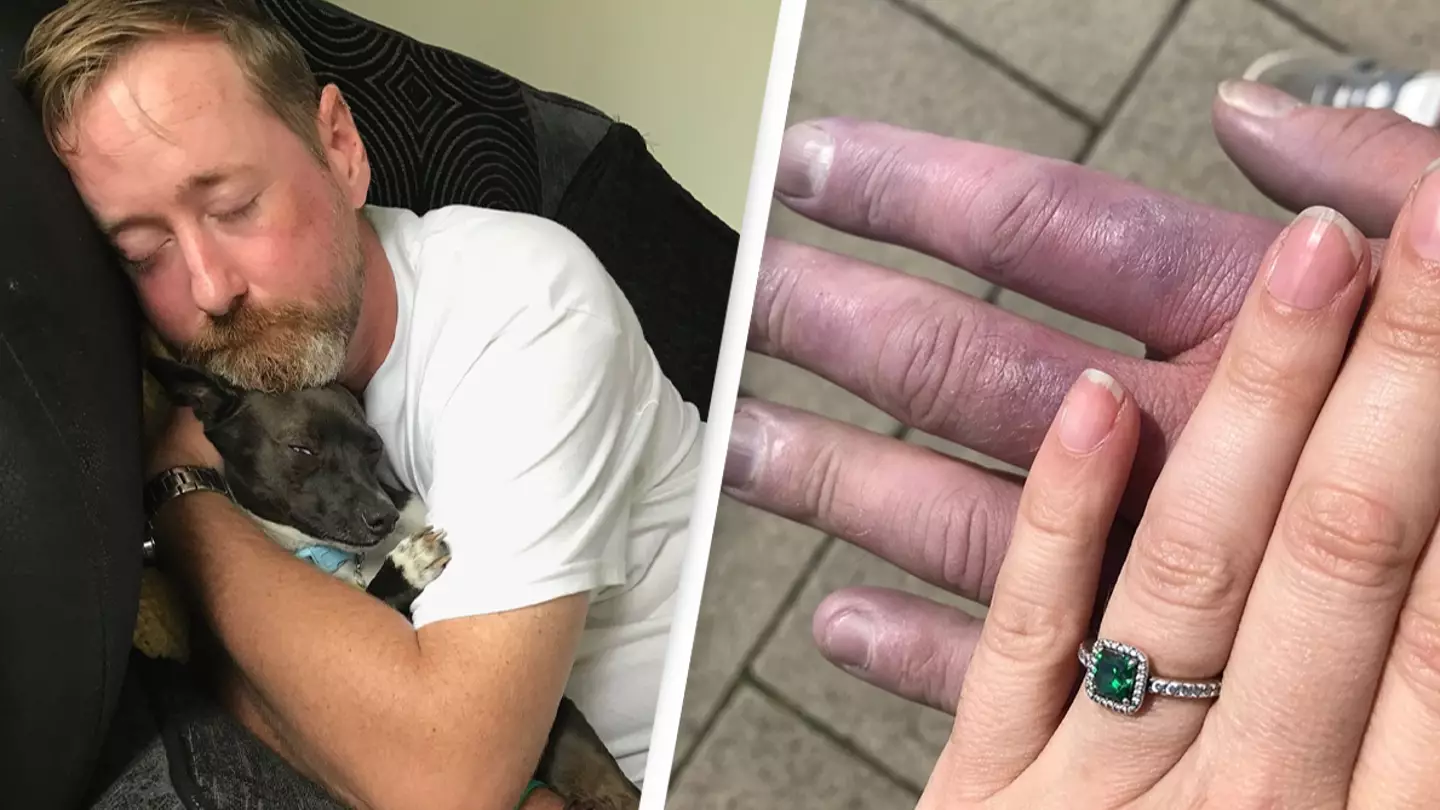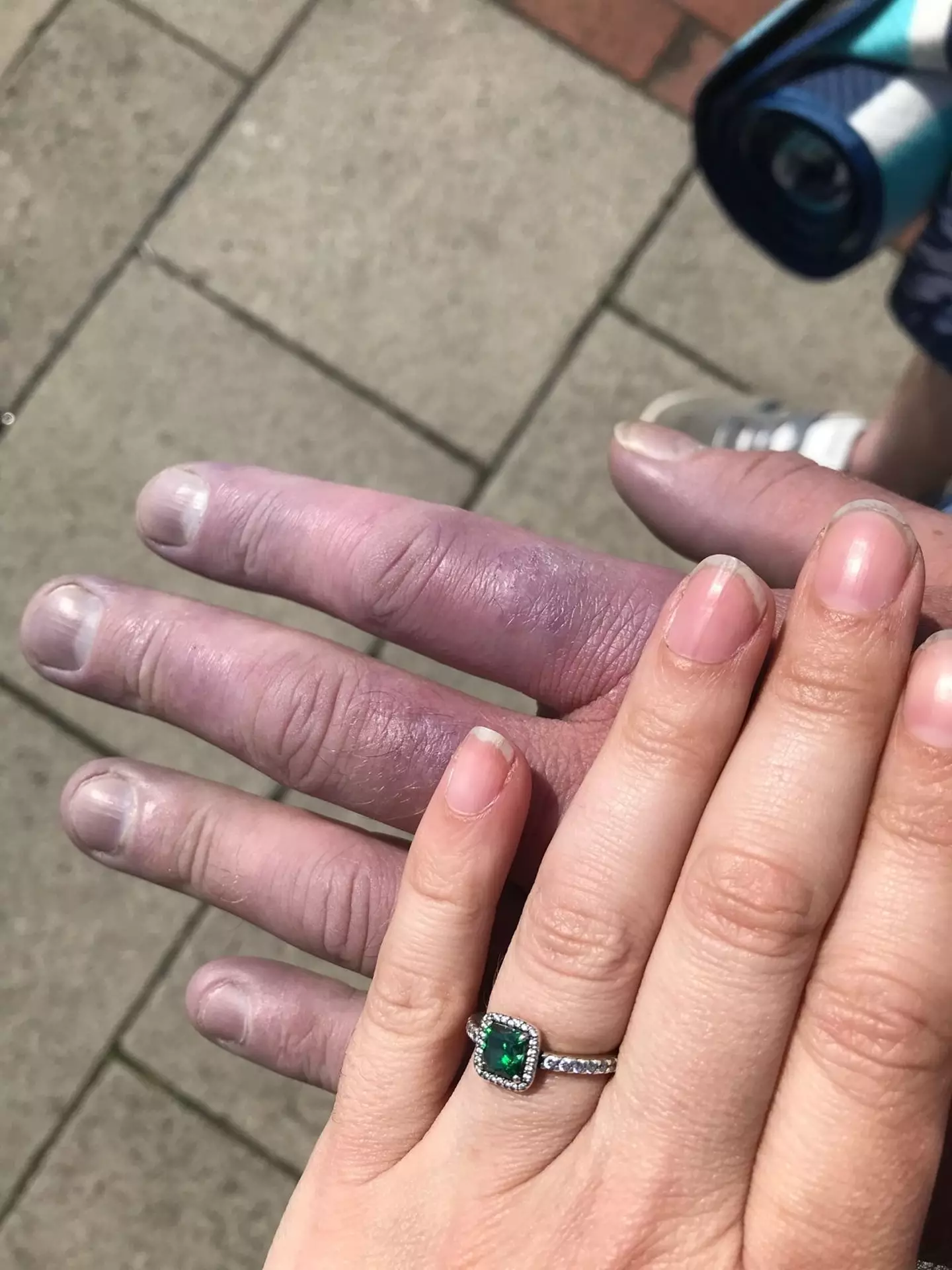
British man Scott Nell, 47, from Houghton-le-Spring, in Sunderland was in for the shock of his life when he found out the cause of why he constantly had cold hands.
The condition can prove to be particularly debilitating and get worse over time.

Scott Nell was given two years to live after his diagnosis (PA)
What is systematic sclerosis?
The condition results in the connective tissue becoming scarred and hardened and it also impacts the vital organs, including lungs, digestive tract, heart and kidneys and ends with them not functioning as normal.
As well as this, the condition can visibly affect the skin making it inflamed and tight. Some patients also find their extremities becoming more sensitive to the cold.
Speaking to the Mail Online, he said: “There was something going on with my fingers and on one occasion I was working and laying a drive and it was snowing but it was so cold, I couldn’t stand it. I took my gloves off and my fingers were white, like sheet-of-paper white. I was really quite shocked and I had to go into the car and heat them.”
As well as this, he began to feel ‘excessively tired’.
When did Nell start noticing symptoms?
Nell said he first experienced a cold sensation in his fingers back in 2017. He remained seemingly fine until 2018 when he began struggling to breathe.
He continued: “As soon as I leaned over to one side, my airwaves just shut off. I was trying to sleep sitting up and it just got to a point where I couldn’t breathe.”

Nell has called on people to get themselves tested if they have concerns (PA)
After being diagnosed, Nell went on to receive chemotherapy, though not as intensive as cancer sufferers, as the treatment can help soften the skin tissue around the organs. As well as this he would take about 250 tablets each week.
However, despite being told he only has two years to live, Nell has lived beyond this prediction and has called on people not to shy away from going to the doctor and getting the tests to confirm whether they also have systematic sclerosis.
He reassured potential sufferers that the most important thing is early diagnosis.
He said: “If you think you might have scleroderma, don’t back off if a doctor suggests it could be something else.”


